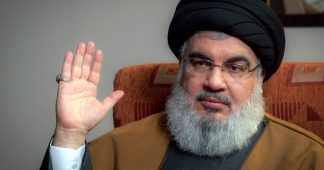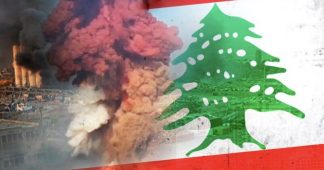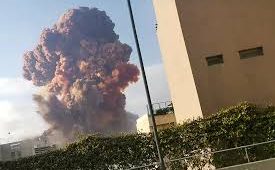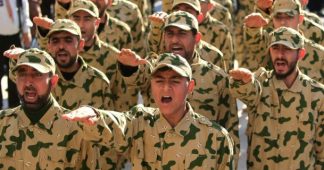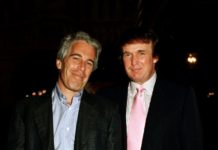by
This is the fourth in a series of articles about the Beirut port explosion and Israeli culpability for the disaster.
Asian Times’ Middle East correspondent has consulted multiple Lebanese sources including an intelligence official and offers much confirming information about my original report that Israel bombed a Hezbollah arms depot at the Beirut port. Much of the information in her article addresses key points raised by skeptics who disagree with my assessment.
A Hezbollah-linked source explains why neither Israel nor Hezbollah would publicly confirm the real nature of the events which transpired:
“The alternative, Lebanese security sources said, would be the logical attribution to Israel, forcing Hezbollah into an equivalent response, which would trigger a war of catastrophic proportions.
“If it was an Israeli attack, then this will not be revealed because it implicates both sides in a war they don’t want,” a senior Lebanese source close to Hezbollah told Asia Times on condition of anonymity.”
Other skeptics allege that the location of the port in a Christian neighborhood would preclude Hezbollah from maintaining an arms facility there. It also notes a point I made in my initial post, that Trump was, for once, telling the truth, when he announced after a high-level military briefing that the Beirut disaster was a “terrible attack:
“In Lebanon, “there is nothing happening in sensitive places – the airport, frontiers, seaport – that is not related to the conflict between Hezbollah and Israel,” a former high-ranking Lebanese military-intelligence source told Asia Times.
The explosion, he assessed, was no accident. And Trump, he said, is evidently incapable of keeping a secret.”
Prevalent in the world media and among others seeking to rebut the Hezbollah-Israel scenario is the claim that the initial explosion was caused by fireworks. This source rebut that and also affirms the chain of catastrophic events began with a detonation of military arms:
“Yet the fireworks scenario is being met with intense skepticism, given the obvious dangers such a close storage arrangement would present.
“I do not believe there was that amount of ammonium nitrate at the port of Beirut, nor that there was a fireworks depot,” explosives expert Danilo Coppe told Italian daily Corriere.
“When ammonium nitrate detonates, it generates an unmistakable yellow cloud. Instead, from the videos of the explosion, in addition to the white sphere that can be seen expanding – which is condensation of the sea air – you can clearly see a brick orange column tending to bright red, typical of lithium participation. Lithium-metal is a propellant for military missiles, so I think there were armaments there.”
“It seems like an explosion of an armament warehouse,” said Coppe.
A U.S. military weapons specialist argues that the initial explosion was a deliberate act of sabotage. Again, this accords with my original report:
“A US military explosives expert who has worked closely with the Lebanese army told Asia Times on condition of anonymity that according to his contacts among the Lebanese armed forces, the explosion was an “act of sabotage” against the hangar, which was holding not only ammonium nitrate, but also short-range missiles, allegedly impounded.
I’ve spoken to several [Lebanese former and current] military people that all agreed this was an arms depot exploding after the first strike, and that the ammonium nitrate would not ignite without a fuse, in this case an explosion,” said Riad Kahwaji, head of the Dubai-based Institute for Near East and Gulf Military Analysis.”
The journalist goes farther saying that her Lebanese defense experts have attributed the “sabotage” to a deliberate Israeli attack:
“A number of Lebanese defense analysts believe Israel did likely carry out the attack, but did not intend for damage of this magnitude.
“The official word, is this was an accident,” said Kahwaji. “Everyone was surprised by the magnitude of the explosion, including the Israelis themselves, and hence they don’t want to take responsibility. Hezbollah won’t say because they don’t want to admit having weapons in the city.”
Frankly, I’m astonished at the level of vitriol and derision my reporting has met. I would expect it from right-wing pro-Israel sources. But much of this vindictive, even personal response has come from those who purport to be on the left. This has astonished me. But it has also made me realize that solidarity is easy on a day to day basis. But when a crisis strikes, then people either lose their bearings or revert to type. It’s good to know who your friends are and aren’t.
I also want to make clear that I accept skepticism. I accept the need to support this scenario with credible information. But I don’t accept outright blanket dismissal shorn of serious argument. And that’s what most of the skeptics offer.
I especially appreciate the few individuals who initially met my report with incredulity, but who kept enough of an open mind to read my ongoing reporting and become convinced that I was, if not absolutely right, at least offering an argument that needed to be taken seriously. Admitting error is not easy. But doing so is a mark of maturity and seriousness.
H/t to Joshua Gold.
Published atwww.richardsilverstein.com
